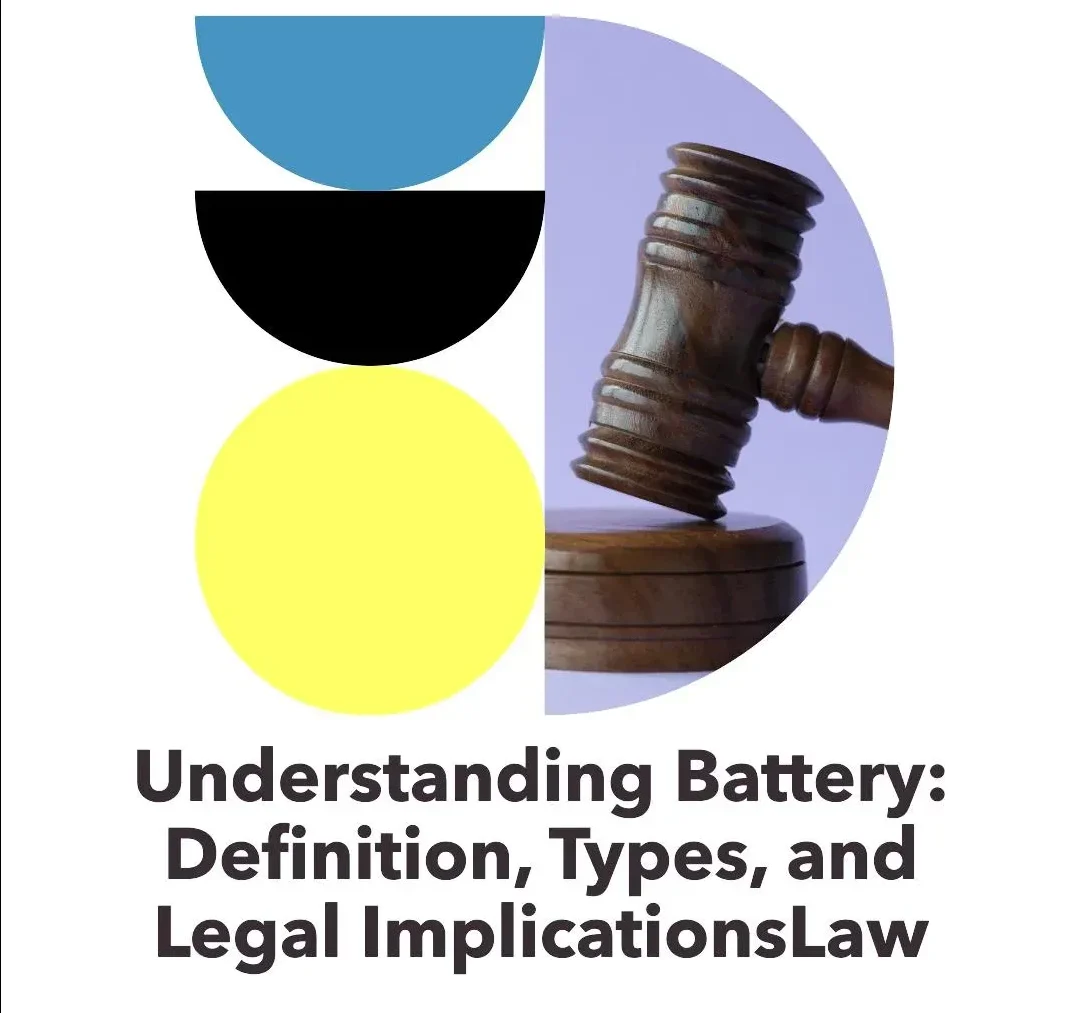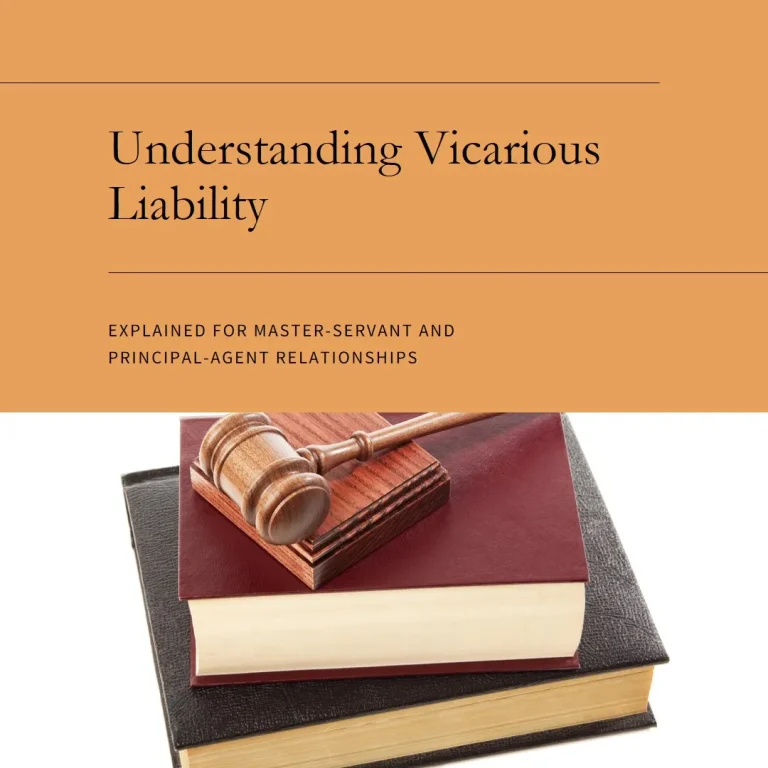
Battery
Definition
Battery means physically touching or applying force to another person without their consent. It is a legal term used for harmful or offensive physical contact against someone.
What type of contact can be battery?
Any unwanted physical contact or use of force against another person’s body counts as battery. This includes things like slapping, pushing, stabbing, throwing objects that hit a person, shooting bullets that hit them, setting animals on them, removing objects they are sitting or standing on, taking things from them, making their clothes or vehicles touch them unexpectedly. Even indirect contact through another object can be battery if it moves their body against their will.
What interest does battery protect?
Battery protects a person’s interest in both physical safety and personal dignity. It is not just about preventing physical harm, but also insult from unwanted touching of their body. Even something like spitting in their face, taking fingerprints, or cutting hair without permission counts as battery.
Are there different ways to commit battery?
Yes, battery can be committed in many forms through direct or indirect physical contact. Some examples are violent acts like hitting, but even non-violent acts like an unwanted internal medical exam of a woman count as battery.
What doesn’t count as battery?
- Indirect harm or contact that is not immediate is usually not considered battery in the eyes of the law.
- The contact between the person committing the act and the victim needs to be direct, without anything else in between.
- For example, if someone whips another person’s horse, and then later the horse kicks the person because of being whipped, the one who whipped the horse did not directly commit battery.
- Even though their action of whipping caused the horse to kick, the kick from the horse was not an immediate result and the whipped person was not in direct contact with the person who whipped the horse.
- For battery, the harm needs to flow immediately from the physical actions of the accused person, without anything else in between influencing events.
Is poisoning battery?
- When it comes to poisoning, it depends on how directly the poison is administered to the victim.
- Directly giving someone poison through injection or forcing them to ingest it against their will, like pouring it into their mouth, would likely be considered battery.
- This is because the contact results immediately from the accused physically administering the poison.
- Intentionally poisoning someone’s food or drink, while knowing they will consume it, may also count as battery since it leads to direct physical contact once ingested.
- However, accidentally exposing someone to poison from a distance or without their knowledge, where contact is not forced, may not meet the legal standard of being direct enough to count as battery.
- The key factor is how immediately the harmful or unwanted contact results from the physical actions and intent of the person accused of battery. Distance or lack of forced contact weakens a case for it being considered a direct battery.
Infliction of light, heat, electricity, odor, and other things can be considered as battery if they are applied to a degree that causes harm or discomfort to a person. In simpler terms, if someone intentionally uses light, heat, electricity, odor, or anything else to hurt or make someone uncomfortable, it can be considered battery.
Mere passive obstruction, on the other hand, does not count as battery. This means that simply blocking someone’s way without actively causing harm or using force is not considered battery. For example, if a police officer prevents someone from entering a place they were expelled from, it is not battery as long as the officer doesn’t take any further action to harm the person.
Battery is a deliberate action. The use of force or contact must be intentional for it to be considered battery. However, there is some debate about whether negligence can also be considered battery. Negligence means not being careful or cautious enough. In some cases, negligence can lead to a legal claim for damages, but in practice, this usually falls under a negligence claim rather than battery.
If the use of force is intentional, it doesn’t matter if the person had some mistaken belief. In a case called Hurst v. Picture Theatres Ltd., for example, a person was forcefully removed from a cinema hall by the manager who mistakenly believed they hadn’t purchased a ticket. The court ruled that the person was entitled to compensation because their forceful removal was intentional.
If someone intends to harm person A but mistakenly harms person B, they can still be held liable for battery towards person B. This is known as “transferred intent.” However, if there is no intention to use force, there is no liability for battery. For instance, shaking someone’s hand or lightly poking them to get their attention is not considered battery. In a crowded place or narrow passage, a slight push without any intention of violence is also not considered battery.
The state of mind of the person being touched and their relationship with the person doing the touching is also important. It can imply consent on the part of the person being touched. If the individuals are not on good terms, even non-offensive contact may become offensive. On the other hand, offensive contact may be tolerated when people are close and intimate. Contacts made in jest may not usually be legally actionable, but they can be considered battery if they go beyond what is considered acceptable. For example, a pat or affectionate gesture from a sincere or passionate lover may be highly offensive to someone who does not reciprocate the feelings and has not given consent.
In any case, if there is consent, either expressed or implied, the tort of battery cannot be committed. In the case of Taylor v. Mc Gillivray, a physician had a sexual relationship with a 16-year-old patient. It was ruled that the tort of battery was not committed because birth control had been discussed and the patient had been taking contraceptive pills provided by the doctor. However, the patient was awarded £50,000 for breach of some other legal duty.
ASSAULT
Assault refers to actions that cause someone else to reasonably fear that they are about to be harmed or attacked.
ELEMENTS
- Act – There must be some kind of threatening action or behavior by the person being accused of assault. Mere words alone are not enough – there needs to be some kind of physical action like shaking a fist in someone’s face or running at them with a weapon.
- Reasonable fear of immediate harm – The threatening actions must cause the other person to reasonably fear that they are about to be physically attacked or harmed right away. It’s not enough for the person to simply say threatening things from a distance where no actual harm could be done. The fear of immediate harm is important.
- Immediacy and imminence: If someone threatens to shoot another person but they are at a distance where the bullet cannot reach the person, it would not be assault.
- Actual intention or capacity of the defendant: The actual intention or capacity of the defendant to inflict harm is not necessary for an act to be considered assault. The focus is on the reasonable apprehension of immediate harm by the plaintiff. So, even if the defendant did not actually intend to use violence or did not have the ability to harm the plaintiff, it can still be assault if the plaintiff reasonably believed they were in immediate danger.
- Words negativing the intention: Sometimes, acts are accompanied by words that contradict or negate the intention behind the act. For example, if a person points a loaded gun towards a boy and says, “Had you been my son, I would have killed you,” the act of pointing the gun could have been considered assault if it weren’t for the accompanying words. The act of pointing the gun alone would create a reasonable fear of harm. However, the words suggest that the person will not actually kill the boy because he is not his son. There is a famous case called Tuberville v. Savage that illustrates this point. In that case, the defendant placed his hand on a sword and said, “If it were not assize time, I would not have taken such language from you,” implying that he couldn’t use his sword because of the assize time. It was determined that there was no assault in this situation.
Distinguish between assault and battery
It’s important to distinguish between assault and battery. In everyday language, the term assault is often used to describe both of these wrongs. However, in tort law, the distinction is crucial. Assault refers to the attempt or threat to commit battery and is sometimes referred to as an incomplete battery. On the other hand, battery is the actual application of force. Assault involves the threat of force, while battery involves the actual use of force. For example, throwing a stone, water, or any object at a person is considered assault, but if it actually hits the person’s body, it becomes battery. Pointing a gun at someone is assault, but if the gun goes off and injures the person, it becomes battery. Similarly, if someone removes a chair just before another person is about to sit on it, it may be considered assault if the person was afraid of falling to the ground. However, once the person falls and touches the ground, it becomes battery.
Does battery include assault?
It may seem like battery is always preceded by assault or that battery includes assault. While this is true in most cases, it is not an absolute rule. There may be situations where battery occurs without an accompanying assault. For example, if a person approaches from behind and strikes someone on the head without any prior threat, battery is present but there is no assault because there is no fear involved in such cases.
Judgement of criminal court
In a civil court case where someone is suing another person for assault (tort action), the judgment or decision of the criminal court on the same issue is only relevant to show if the person was convicted or acquitted (found not guilty) in the criminal case.
The civil court does not have to follow or agree with the decision of the criminal court. The civil court will do its own investigation of the facts of the case without being influenced by the criminal court’s decision.
Damages
The civil court can award damages or compensation to the person suing in different categories:
- For physical and mental pain suffered due to the assault.
- For loss of ability to enjoy life normally after the assault.
- Actual money lost because of the assault like medical bills.
- Expenses spent on things like doctor fees because of the assault.
- If the person was able to earn money through work, the court can compensate for future loss of ability to work properly or loss of work due to the assault.
- If the assault was done deliberately to hurt the person, the court can award more compensation (exemplary or aggravated damages) as punishment.






